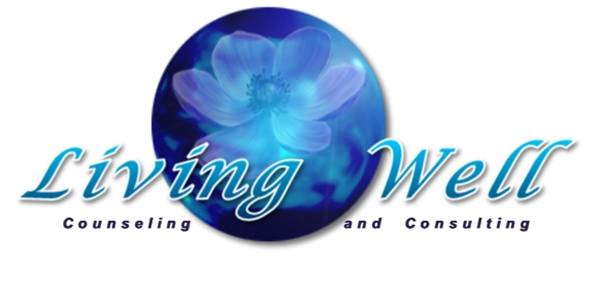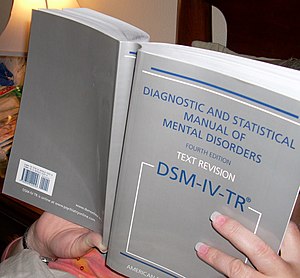Physical disorders can be very scary. How many times in your lifetime have you gone to the doctor and heard you just needed an antibiotic, you had the flu or a rash or needed something to help with indigestion? Then you have an annual physical, a blood test and the doctor calls back saying they need you to come in right away. You hear you have diabetes or heart disease, high cholesterol or some other frightening disease that you never thought you would hear. Your mind starts racing, you think, "This can't be happening to me!" Then, once it sinks in, you start learning everything you can about it, believing that it will be relatively easy to overcome and you'll be back to normal in no time. However after a short time you come to realize that overcoming 40 or 50 years of bad habits isn't so easy. Then you get discouraged and realize that if you don't make the changes needed to turn this thing around, your life may be at stake. Determination takes over and you begin again.
Sometimes as we are researching what to do, we are successful in finding alternative treatments that work, that are more compatible with our value systems. If we have caught the disease in time, it may be much more simple to turn around than if we have denied our symptoms and the disease has progressed. Hope returns and step by step we can address the problem that has overtaken us physically.
Mental disorders are not the same, although many people are diagnosed every day with depression, bi-polar disorder or different forms of personality disorders. The problem is that mental disorders come with more of a stigma. Once the person is diagnosed, although perhaps feeling relieved to know exactly what is going on, they then have to deal with learning about it, how to manage it and often the reaction from family and friends when they become aware of the diagnosis. This kind of diagnosis is just as scary, but can come with a distinct weight and path that needs to be walked out individually.
There are support groups for some of the more well known mental health issues such as depression and grief, but many of the more severe disorders don't lend themselves to support groups as well. Usually by the time someone has been diagnosed, they have alienated family and friends, finding themselves with little to no support.
As we age, the probability that we are going to hear something like this in our own lives becomes more real. How will we deal with it? How will those around us that we care about be affected? How will we be able to handle a negative response. These too become individual responses. As much as possible, attitude plays a huge part in whether we are successful in facing a distressing diagnosis or not. Joy, laughter, love and encouragement are just as essential in the path back to good health as medical science.
Although we may not realize it, unaddressed emotion can effect us mentally as well as physically. It is my humble opinion that in the journey of life, the body is the last voice to speak when we continue to ignore our feelings and stuff our emotional responses to the problems we face in life. Feelings that are ignored don't die. They come up when we are exposed to similar events, people, sights or smells. These are called emotional triggers and are there due to the chemistry of the unresolved emotion existing within the body. If we continue to ignore these emotions, they can develop into fears, social withdrawal, discouragement, depression or eating disorders. If we let them go long enough, the body becomes endangered.
For example, given enough time, the body will begin to interpret a consistent emotion of anger as a wound. The normal response to a wound is to release fibrin, the wound clots, scar tissue forms and the wound begins to heal. So what happens when there is no wound? The body releases that fibrin and it continues to build up and circulate in the blood stream. Clots can form and the person may be more susceptible to a stroke than s/he would have been if that emotion had been dealt with early on in life. Additionally, anything we do to turn the body more acidic will leave us more vulnerable to disease.
 Cover of Bob Hope
Cover of Bob HopeIt has also been shown in various studies that happiness helps to innoculate us to the hardships of life. It provides us with a strength of spirit that can sustain us during the hard times. Some things that can increase our happiness quotient revolve around developing a grateful heart. We can do that by keeping a gratitude diary where every day we write down three things we are grateful for. As we write in the diary, it is important to feel that gratefulness, just for a few minutes each day. Another strategy is to begin doing things each day that make us happy. Sometimes it can be a hobby or participating in activities that we are passionate about. Focusing on others, random acts of kindness, and telling the important people in our lives how much they mean to us can begin to turn our hearts to a more positive place. For couples, a wonderful idea can be found in keeping a journal that each person writes in. One day, one spouse writes something about the other spouse that blesses them and leaves the journal in a predetermined place for the spouse to find. The next day, the other spouse writes something in the journal that blesses them about the first spouse and returns it to the same place. This technique serves to encourage and bless both spouses as it focuses attention for each one on the positive attributes and actions of the other. Siblings and families can adapt this technique as well.
Human beings are very complex so please understand I am not suggesting that this is the only way to stay healthy. However, in the long term, it does have its benefits. My encouragement to you would be to deal with your emotional baggage as soon as possible. Forgive where you need to, try to find the humor in things and enjoy the life that you have been given. Life is too short to address it any other way, but unfortunately we let too much time pass by before we truly understand that concept.
Kriss Mitchell is a Licensed Professional Counselor in Post Falls, Idaho. For more information, please visit www.livingwellcc.com.





No comments:
Post a Comment